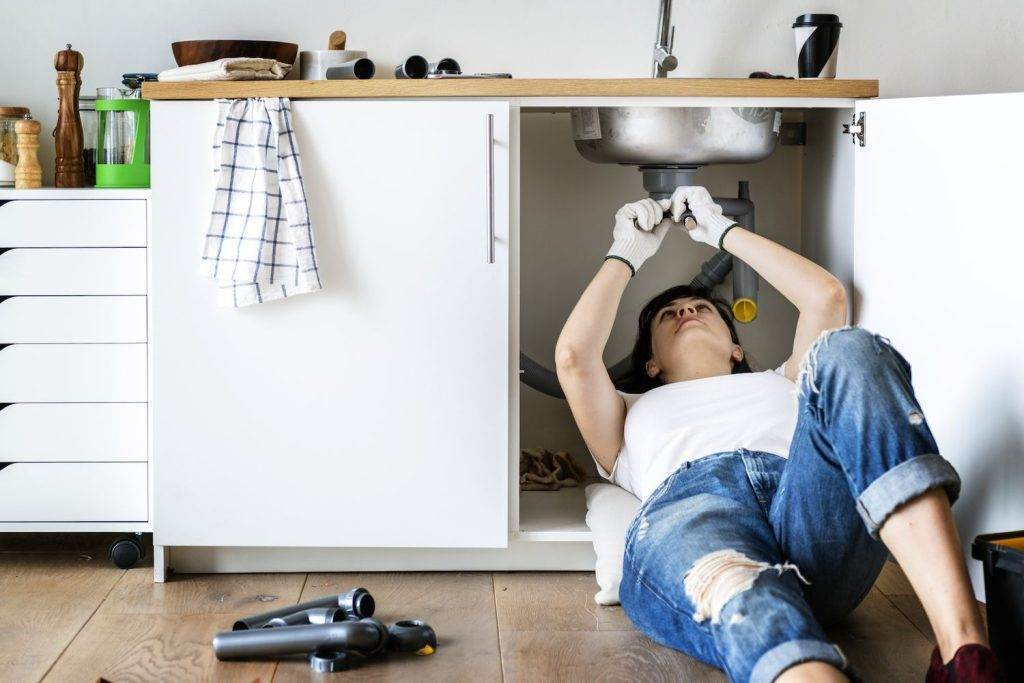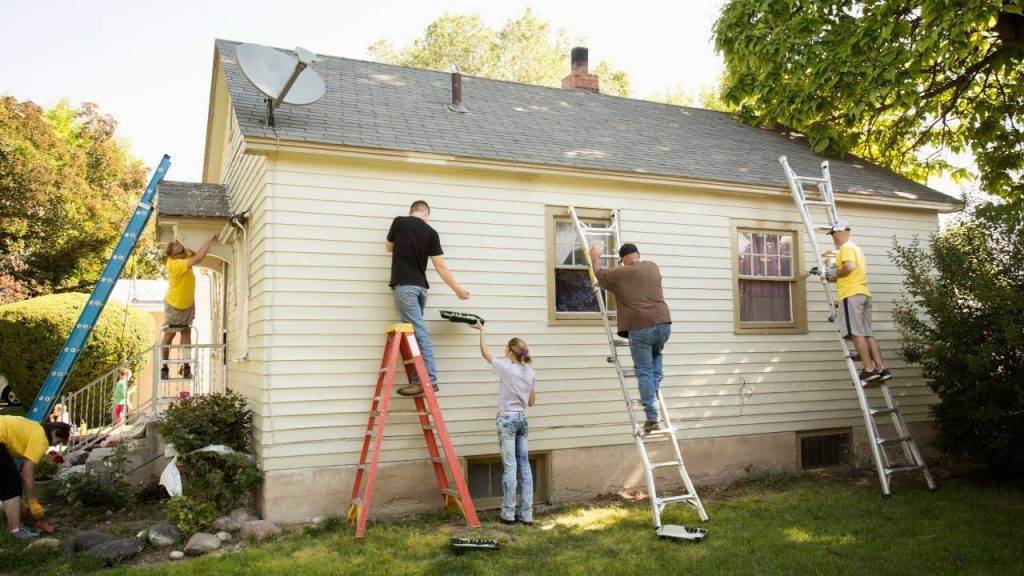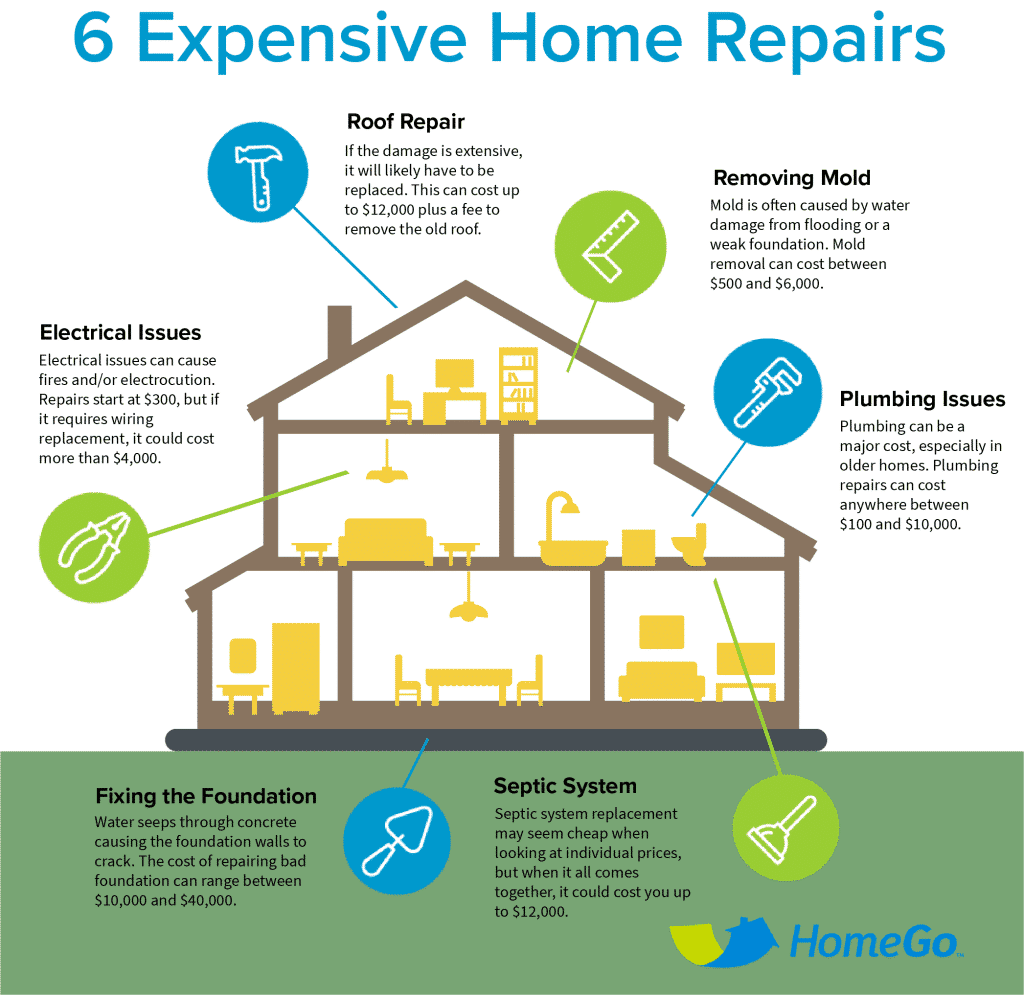So you’ve got a leaky faucet, a squeaky floorboard, and a crack in your wall. Who do you call to come to the rescue? Well, you’re in luck because there’s a specific person trained to handle all your housing mishaps. They have the knowledge, skills, and tools to tackle any repair job thrown their way. They’ll make sure your house is in tip-top shape and running smoothly again. So what do you call this magical fixer-upper? In the world of home maintenance, they go by the title of “handyman.” Now you can easily identify who to reach out to when your nest needs some fixing!

This image is property of www.realsimple.com.
What is a House Fixer?
A house fixer, also known by various other names such as contractor, builder, handyman, carpenter, and renovator, is a skilled individual who specializes in repairing, renovating, and maintaining houses. These professionals have a wide range of skills and knowledge that allows them to tackle various tasks involved in house repair and improvement.
Different Names for a House Fixer
House fixers are commonly referred to by different names depending on their specific area of expertise or the nature of their work. These names include contractor, builder, handyman, carpenter, and renovator. Each of these titles represents a different aspect of the work performed by these professionals.
- Contractor: A contractor is typically responsible for overseeing and managing construction or renovation projects from start to finish. They may work on residential or commercial properties and coordinate with various subcontractors to ensure the project is completed successfully.
- Builder: Builders are professionals who are skilled in constructing new houses from the ground up. They have expertise in different areas of construction and are responsible for ensuring the structural integrity and quality of the building.
- Handyman: Handymen are versatile individuals who are skilled in various small repair and maintenance tasks around the house. They can handle a wide range of tasks such as fixing leaky faucets, replacing light fixtures, and repairing minor damages.
- Carpenter: Carpenters are skilled craftsmen who specialize in working with wood. They can build and install wooden structures, cabinets, furniture, and handle various woodworking tasks required in house repairs and renovations.
- Renovator: Renovators are professionals who specialize in renovating and updating existing homes. They have expertise in identifying areas that need improvement, planning and executing renovation projects, and transforming older homes into modern living spaces.
This image is property of qph.cf2.quoracdn.net.
Diverse Skills Required
House fixers need to possess diverse skills to effectively address the various issues that arise in house repairs and renovations. These professionals are often considered to be jacks of all trades due to their broad range of abilities.
A Jack of All Trades
A house fixer is like a jack of all trades, as they possess skills in multiple areas. Let’s explore some of the key skills that a house fixer must have:
Plumbing
House fixers must have a solid understanding of plumbing systems. They should be able to diagnose and repair plumbing issues such as leaks, clogged drains, and faulty fixtures. They should also be knowledgeable about installing and maintaining plumbing systems.
Electrical
Electrical expertise is essential for house fixers as they frequently encounter electrical problems while working on houses. They need to be able to handle tasks such as replacing outlets and switches, troubleshooting electrical failures, and understanding basic wiring principles.
Carpentry
Carpentry skills are a must for house fixers, as they often encounter tasks such as replacing damaged wooden structures, building cabinets, installing doors, and repairing or installing flooring. They should be proficient in measuring, cutting, and shaping wood, as well as working with different types of tools and materials.
Masonry
Knowledge of masonry is valuable for house fixers who work on projects involving bricks, stones, concrete, and other construction materials. They may need to repair or rebuild damaged masonry structures, such as chimneys, walls, or foundations.
Roofing
House fixers should have a good understanding of roofing systems to handle repairs, replacements, or installations. They should be familiar with various roofing materials, such as shingles or tiles, and possess the skills to identify and fix leaks, damaged flashing, and other common roof problems.

This image is property of www.bankrate.com.
Working with Tools
House fixers rely on various tools to complete their tasks efficiently and effectively. Let’s take a look at some essential tools that a house fixer should have in their arsenal:
Hammer
A hammer is a versatile tool that is essential for driving nails and removing them. It is one of the most commonly used tools for various carpentry tasks and general house repairs.
Screwdriver
Screwdrivers come in different types and sizes and are used for driving or tightening screws. They are indispensable for tasks such as assembling furniture, installing hardware, and fixing electrical or plumbing fixtures.
Power Drill
A power drill is a versatile tool that allows house fixers to drill holes, drive screws, and perform other tasks quickly and efficiently. It is an essential tool for both construction and repair work.
Saw
A saw is necessary for cutting and shaping wood, plastic, or other materials. Different types of saws, such as hand saws, circular saws, or reciprocating saws, serve specific purposes and are required for various projects.
Adjustable Wrench
Adjustable wrenches are used to tighten or loosen nuts and bolts of different sizes. They are handy tools for plumbing tasks, assembling furniture, and general repairs where a secure grip is needed.
Education and Training
While formal education is not always required to become a house fixer, acquiring the right knowledge and skills through education and training can greatly enhance their abilities and career prospects.

This image is property of www.homego.com.
Formal Education in Construction
Various educational pathways can equip individuals with the necessary knowledge and skills to excel as house fixers. These include:
Trade Schools
Trade schools offer focused programs that provide hands-on training in specific trades, including construction and carpentry. These programs often cover a wide range of skills and can provide a solid foundation for a career as a house fixer.
Community Colleges
Community colleges offer Associate’s degree programs in fields related to construction and building trades. These programs provide a more comprehensive understanding of construction principles, codes, and practices. They also incorporate practical training to help students develop the skills needed in the field.
Apprenticeships
Apprenticeships provide a combination of on-the-job training and classroom instruction. They offer aspiring house fixers the opportunity to learn from experienced professionals while gaining practical experience in real-world situations. Apprenticeships typically span several years, during which apprentices gradually develop their skills and knowledge.
Experience and Specialization
As with many professions, experience plays a vital role in a house fixer’s career. The more projects they work on, the more skillful and knowledgeable they become. Over time, many house fixers find themselves specializing in specific areas of house repair and improvement.

This image is property of pyxis.nymag.com.
Finding Specialization
House fixers can specialize in various areas based on their interests, skills, and experience. Let’s explore some common areas of specialization:
Plumbing
Plumbing specialists focus on repairing, installing, and maintaining plumbing systems. They develop specific expertise in dealing with pipes, fixtures, and water supply systems, becoming go-to professionals for any plumbing-related issues.
Electrical
Electrical specialists are well-versed in handling electrical systems, wiring, and devices. They possess in-depth knowledge of electrical codes, safety regulations, and troubleshooting techniques. Their specialization allows them to tackle complex electrical problems with precision.
Roofing
Roofing specialists are experts in all aspects of roofing systems. They possess a deep understanding of different roofing materials, installation techniques, and repair methods. They are skilled at identifying and addressing roof-related issues, such as leaks, damaged shingles, or compromised flashing.
Carpentry
Carpentry specialists have honed their skills in working with wood and excel in tasks such as building custom furniture, installing intricate molding, or creating bespoke cabinetry. Their specialized knowledge allows them to deliver exceptional craftsmanship and bring unique design elements to houses.
HVAC systems
HVAC (Heating, Ventilation, and Air Conditioning) specialists focus on maintaining, repairing, and installing HVAC systems. They possess the technical expertise to diagnose and fix issues with heating and cooling equipment, ensuring optimal comfort and energy efficiency in homes.
In conclusion, a house fixer, known by various names such as contractor, builder, handyman, carpenter, or renovator, is a skilled professional who possesses a diverse range of skills and knowledge. They are like jacks of all trades, capable of addressing plumbing, electrical, carpentry, masonry, and roofing tasks. Equipped with essential tools and, optionally, formal education or specialized training, house fixers play a crucial role in maintaining and improving our homes. Whether they choose to specialize in a specific area or have a broader scope of expertise, these professionals are instrumental in keeping houses functional, safe, and aesthetically pleasing.
